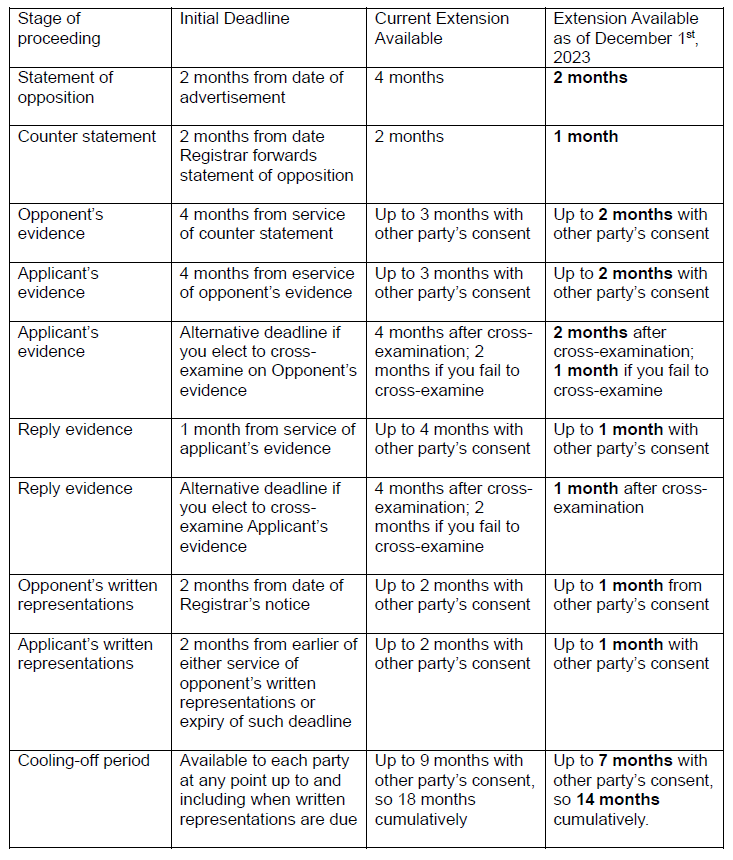Recently the Canadian Trademarks Office announced that extensions of time available in Oppositions and Section 45 (non-use cancellation) proceedings will be significantly reduced as of December 1st. In this article, we look at the scope and
impact of some of these changes and provide guidance on steps brand owners can take now, to benefit from longer time extensions.
What has the Canadian Trademarks Office changed?
The reductions to time extensions range from 20% to 75% at different stages of the proceedings and the changes vary for Oppositions and Section 45 proceedings. The changes come into effect on December 1st, 2023.
What do brand owners need to know?
With the introduction of these changes to the length of time extensions, brand owners will have to act more quickly at all stages of Section 45 and Opposition proceedings.
Section 45 proceedings:
Registrants subject to a Section 45 proceeding should be aware that the extension of time available to file evidence has been reduced by 50%, from four months to two months.
Oppositions:
Extensions of time available during Oppositions have also been significantly shortened.
For example, currently an opponent can obtain a three-month extension to file evidence. After the changes, only a two-month extension will be available.
Importantly, these changes also reduce the “cooling-off” period available to parties engaged in settlement discussions. Currently, each party can request up to a nine-month cooling-off period at any point if the other party consents. The new
changes reduce this extension period to seven months.
A more exhaustive list of the changes to time extensions available at all stages of Opposition proceedings is outlined in the chart below:

What should brand owners do before December 1st, 2023?
Any time extension requests filed before December 1st, 2023 will be handled under the current practice. Accordingly, brand owners that are subject to an Opposition or Section 45 proceeding and are interested in longer extensions of time should ensure that any such requests are filed prior to December 1st, 2023.
If you have any questions or would like further information, please contact a member of our Trademarks and Brand Protection team.
The preceding is intended as a timely update on Canadian intellectual property and technology law. The content is informational only and does not constitute legal or professional advice. To obtain such advice, please communicate with our offices directly.
Related Publications & Articles
-
Strategic considerations: Canadian post-grant patent administrative procedures
The Canadian patent system provides multiple post-grant administrative procedures that allow both patentees and third parties to revisit the scope or validity of a patent without going to court.Read More -
Moral rights and contractual gaps: the case of a hidden mural
The decision in Bachand c Mural underscores the importance of considering moral rights when commissioning public art.Read More -
In(dustry) focus: consumer goods – a complete IP framework for entering the Canadian market
In this first article of the series, we explore consumer goods. Given the upcoming holiday season, we will use a fictional toy – “Andy the Ampersand” – to convey our insights. Whether you’re new to th...Read More
